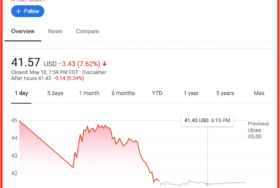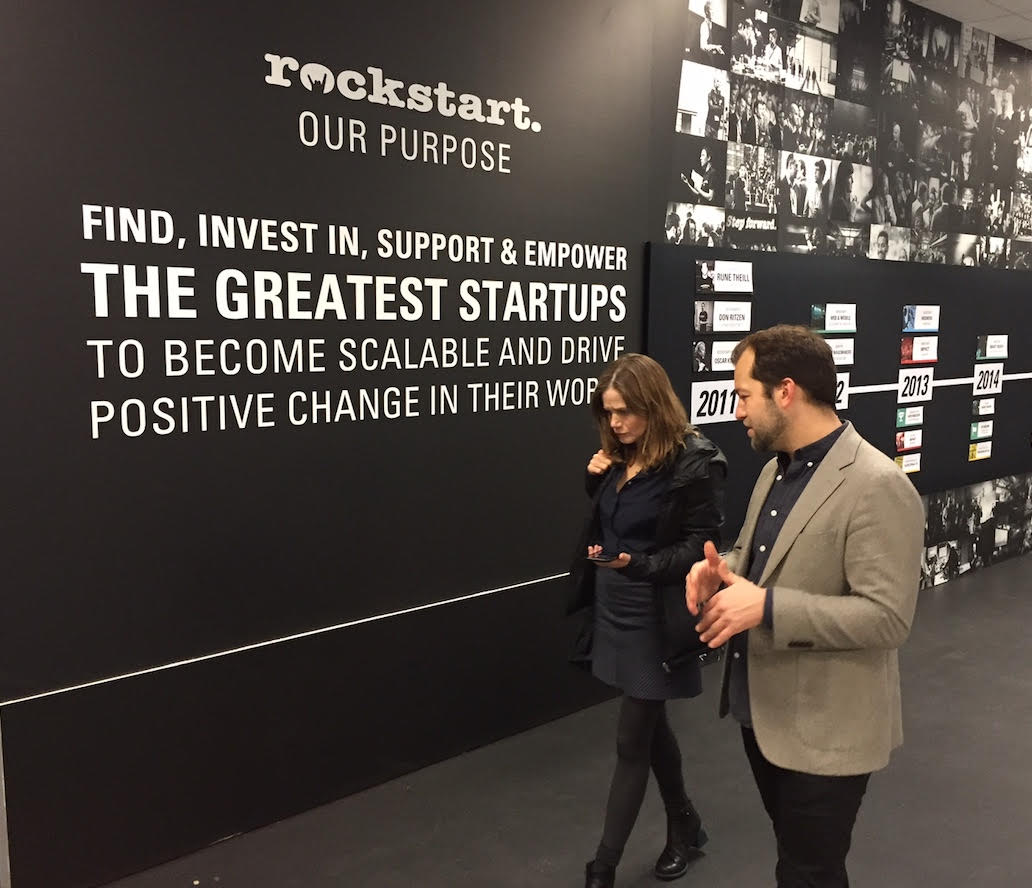
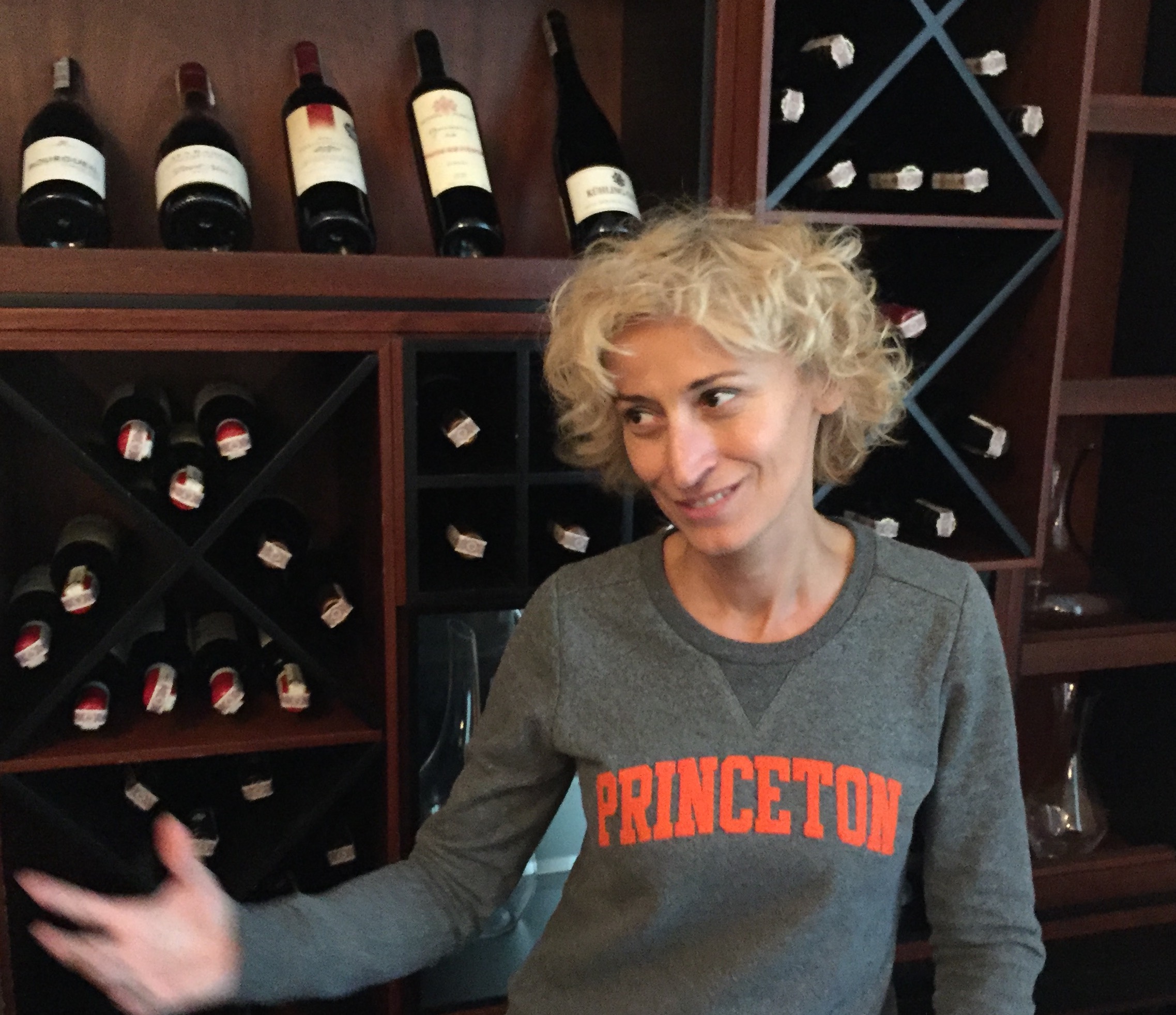
Kinga Stanislawska
When you’re writing a book about people who practice lean startup, you need to walk the walk. We’ve been studying how entrepreneurs spark businesses around the world, and our gut told us the traditional route of starting by reading books and researching online wouldn’t fly. For all the hype about mobile communication, interviewing global innovators via Skype or video chat also seemed a lukewarm launch strategy. We opted for a direct, physical, human path. Fly to Europe for a five-week deep dive to supercharge our project. Knock off Lausanne, Switzerland, immerse ourselves for a week in Paris, join the 50,000 enthusiasts at Web Summit in Lisbon, and end nearly a month later at Slush in frosty Helsinki (with several other countries in between). But we had more of a mission than a plan and our departure date came upon us fast. Suddenly, after two long flights from San Francisco, and a fast train from Geneva, Switzerland, we were walking the chilly streets of Lausanne facing reality. We had to create a global network on the fly.
The first inkling of our far-fetched idea came to light at a Silicon Valley European event in San Francisco in late spring. We’d already been regulars on the circuit, attending more than a hundred startup, tech and entrepreneurial events around the Bay Area in the past year. Time to stretch our wings. Local venture capitalists crow that the future revolves around Sand Hill Road, but it isn’t a one-size-fits-all world, and despite the stunning rise of San Francisco as the center of global entrepreneurship there’s something deeply troubling about our intractable homeless and housing crises, and the crass obsession with quick tech riches. We set out to explore other cities and ecosystems, to leave California’s orbit in search of fresh ideas and entrepreneurs with vision and purpose.
Global Connectors Hold the Key
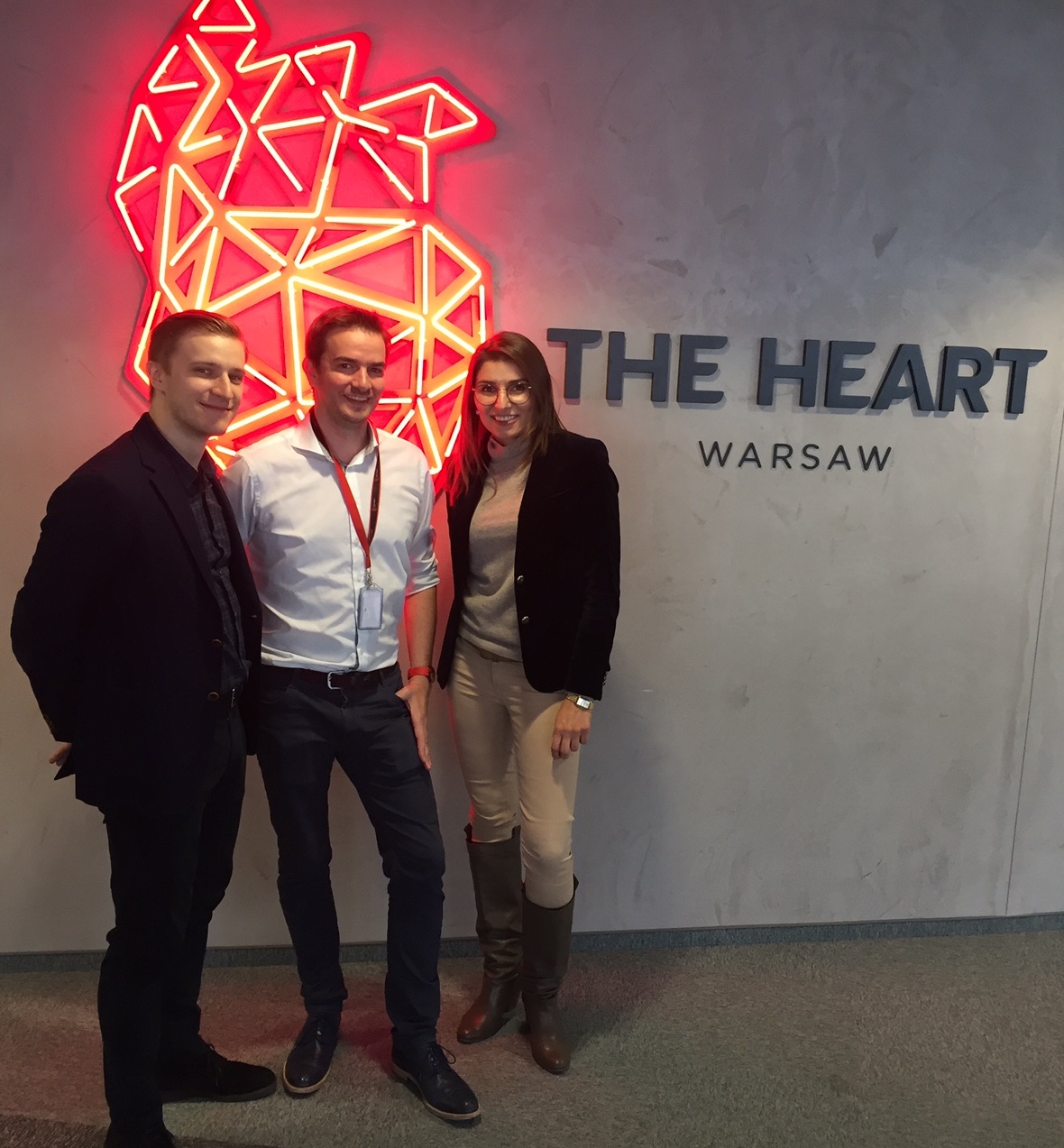
Pawel Michelski, Tomasz Rudolf, Barbara Sobowska
Our luckiest first move was to connect with the right global connectors in person before we left town. In late August, we went to the San Francisco EIT Digital office of Patrick Consorti, Nina Ehrsam, and Eric Thelen, who invited us to attend the week-long Startup Europe Comes to Silicon Valley (SEC2SV) program in mid-September, and then kindly sent out a flurry of emails on our behalf (for contacts in France and Finland, especially). Our method was simple. As we encountered Europeans we might later visit, or who could connect us to their colleagues back home, we followed the laws of mutual attraction. For whatever reason, we didn’t click with the Germans and Italians at the conference, yet we met a bevy of friendly Slovenian entrepreneurs and officials immersed in developing blockchain and crypto projects. They encouraged us to visit their tiny country, so we added it to our itinerary. Then there was the outlier, Kinga Stanislawska, the bright and gregarious managing partner of Experior Venture Fund in Warsaw, who promised we wouldn’t be disappointed if we made the trek to Poland – just a hopper flight from Slovenia. We’d also been attending events at the French firm Capgemini’s San Francisco Applied Innovation Exchange, where we bonded with Vice President Joe Boggio, who had excellent ideas about places to visit, and connected us with Raphael Bord of Credit Agricole just before we left.
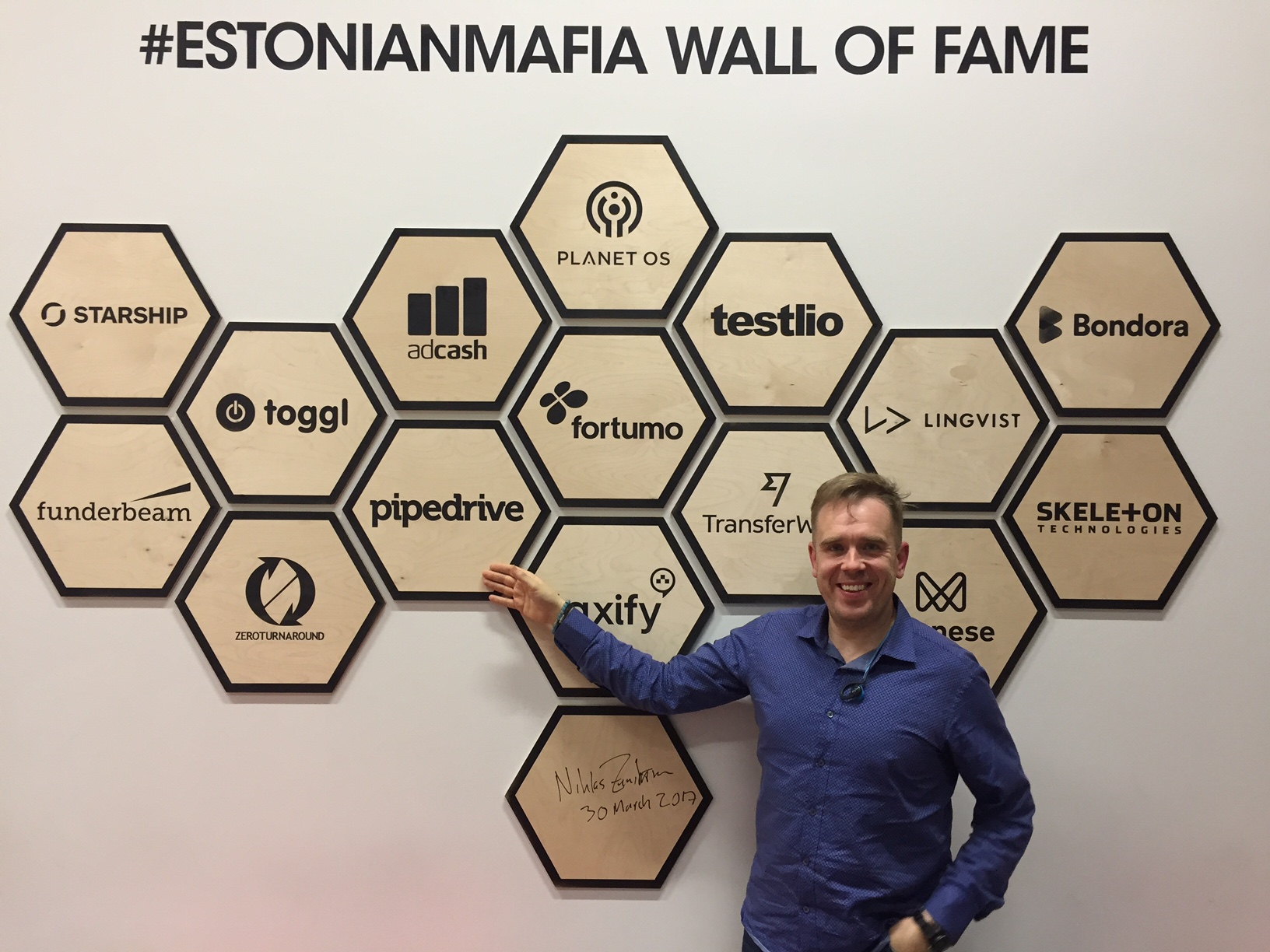
Ragnar Sass
We arrived in Lausanne early in the morning, bleary-eyed after 20 hours of travel and no real sleep. Thanks to connections made through Nilson Kufus of Nomoko during a prototyping lab at swissnex, we lined up three compelling meetings in a row, ending at the local VR unicorn, MindMaze. Then we hopped the afternoon train to Paris, diving into our email to finalize appointments for the next leg of the trip. Before we left San Francisco, we’d been asking everyone we knew for a connection at Station F, and finally it came to us from afar, from our Polish VC friend Kinga, who happened to know Roxanne Varza, the Director. We managed to set up a tour and two meetings for our first day in Paris. As it turned out, the meetings were springboards, spawning more contacts and more interviews, and sure enough we were back at Station F every day during our week in Paris, shuttling back and forth from 42, Schoolab, and Le Village, where we met a Capgemini executive who connected us with the head of the famed HEC business school’s Launchpad startup program and incubator (whom we later connected to the head of Stanford’s Launchpad). Along the way we opened our eyes to a fascinating trend. Global tech entrepreneurs are a fast-moving breed who rarely prioritize requests for interviews a couple of weeks out. Scheduling meetings on the fly is de rigueur, and so our improvised, make-it-happen city-by-city strategy took flight.
Fast Prototyping and Creating Luck

Igor Ponikarchik
Web Summit is Europe’s biggest tech conference by far, and it presented a different problem. Do you follow the masses and attend auditorium-sized talks and startup pitches, or zero in on individuals? We made a point of seeking out Web Summit attendees, startup founders, exhibitors and speakers from countries at later destinations on our itinerary, and specifically asked them to connect us with incubators and expert networkers in their home cities. We got their business cards and gave them ours. We sent direct emails. No half-baked LinkedIn invites. It worked like a charm. When you meet someone in person, and later have that person vouch for you within their own community, that’s invaluable, an instant exponential expansion of your network.
Case in point: at Web Summit, we met and interviewed Siim Sikkut, Estonia’s Chief Technology Officer, who we hoped might flip the switch for us in Tallinn, where we were headed in a couple of weeks. We also found key contacts visiting from Warsaw, Amsterdam, Tallinn and Finland who would later unlock doors in their cities, as well as a young Lisboeta with the local firm Unbabel, who told us where to live if we felt the pull to return.
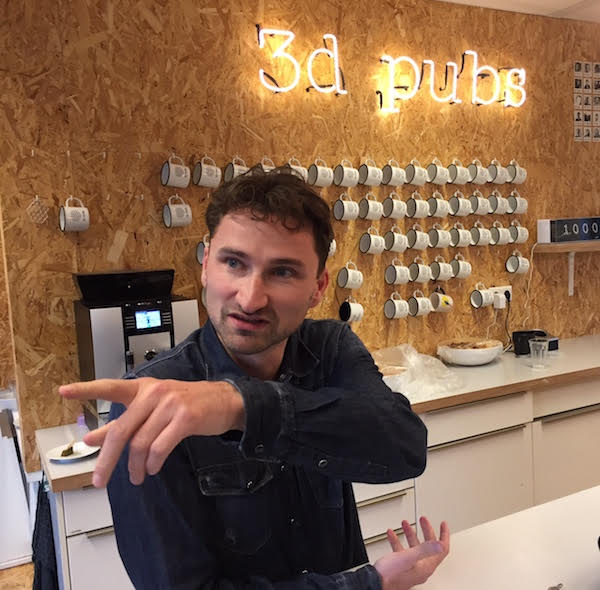
Bram de Zwart
Thanks to Kinga, in Warsaw we had a whole day of running from one startup to another followed by a packed weekend at Tomasz Rudolf’s corporate startup hub The Heart, for a VC startup conference led by Barbara Sobowska and Pawel Michelski with a talk by the head of Google’s Warsaw campus. Sometimes we made our own luck. As we headed north, two cities we’d blocked out near the end of our trip looked like they might be a bust. Between Amsterdam and Tallinn we had lined up just a single advance interview. Then, the day before we left Warsaw for Amsterdam, we got a break. We’d met and interviewed Roemer Claasen at Web Summit, and been impressed by his business smarts, and startup, Frosha.io. Even better, Roemer was being incubated at Amsterdam’s celebrated Rockstart. He connected us to Rune Theill, the incubator’s CEO, who emailed and asked us to phone, and we called on a Sunday afternoon while he was on a train in the Netherlands, where he kindly fit us in on the first morning of our stay in the lovely city of canals. Rune treated us to a fantastic vegan meal in the incubator’s café, filled us in on Amsterdam’s hopping startup scene, and then lit up our connection switchboard. Suddenly we had half a dozen meetings set up at ACE Incubator, TQ, Startup Amsterdam, ending with former Rockstart incubee Bram de Zwart of the giant international network of manufacturing hubs, 3D Hubs, so many that we had to start turning away requests.
Paying it Forward
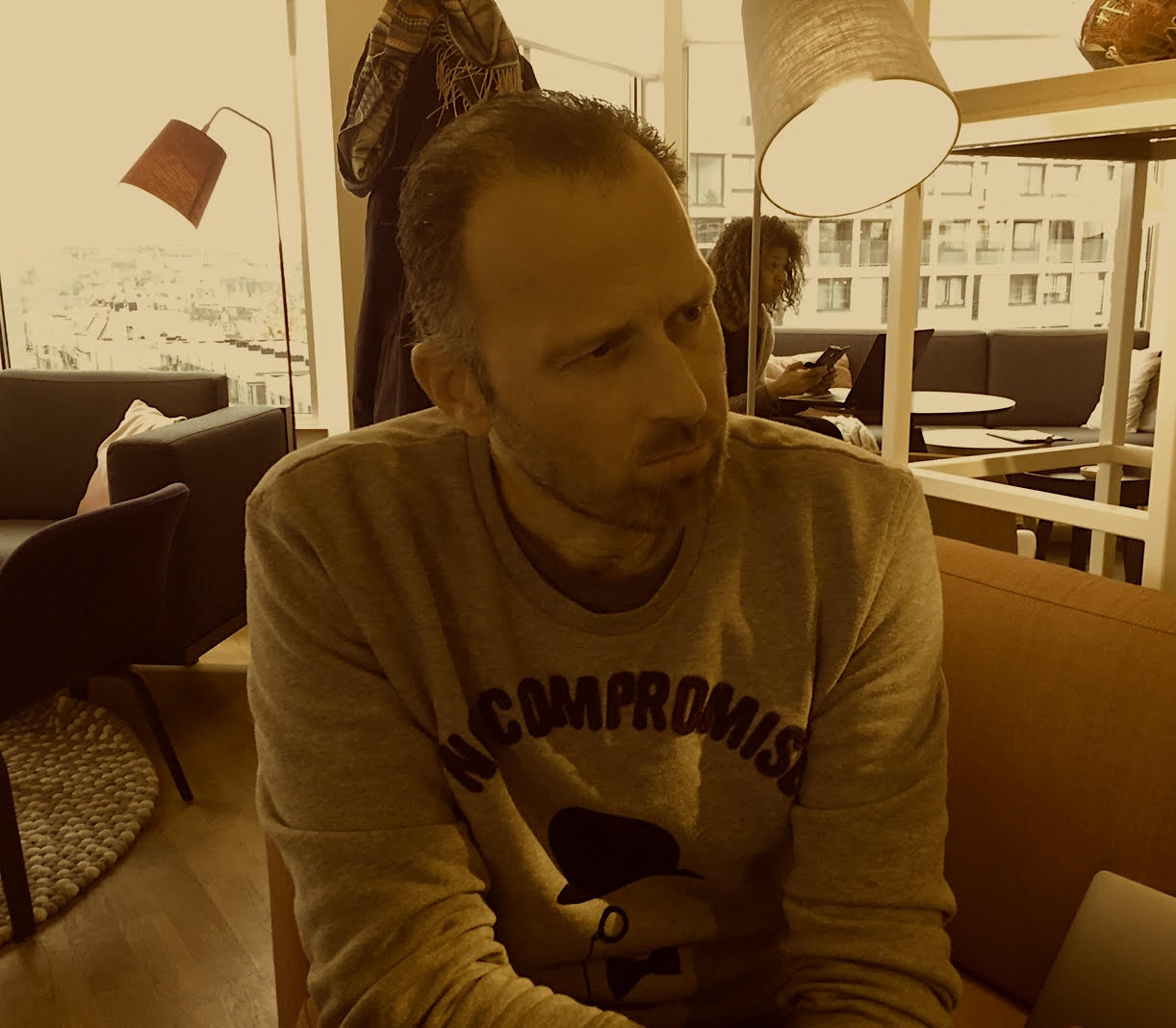
Ruben Nieuwenhuis
Then we were blessed with a wonderful surprise that later allowed us to pay it forward. As we hopped in an Uber to meet Ruben Nieuwenhuis of Startup Amsterdam, he texted a last-minute venue change. We redirected the car to an address in the north of the city, where we ascended to an enclosed roof garden opening onto a bustling upscale café, and were immediately offered a hot drink. (In Europe, you’re always offered a coffee or tea when you arrive for a meeting. It’s classy, and studies show it warms the connection.) Ruben told us all about his organization’s public-private planning success in transforming Amsterdam into what the European Commission in 2016 christened the European Capital of Innovation. Ruben handed us a copy of his compelling book with Bas Beekman, StartupCity, which details their 20-year plan to engineer economic growth and prosperity. Our meeting with Ruben spilled well over the allotted time, at which point we inquired about the obvious: what was this the fabulous, thrumming professional social scene? What happened next was serendipity: we learned we were at Zoku, an experiment in elite co-living, a co-working hotel with a distinctly kinetic vibe. A tall, handsome Dutchman gave us a tour, we met the founders, Marc Jongerius and Hans Meyer, and Identity and Design Manager Veerle Donders, who it turned out was planning a trip to SF in a couple of weeks.
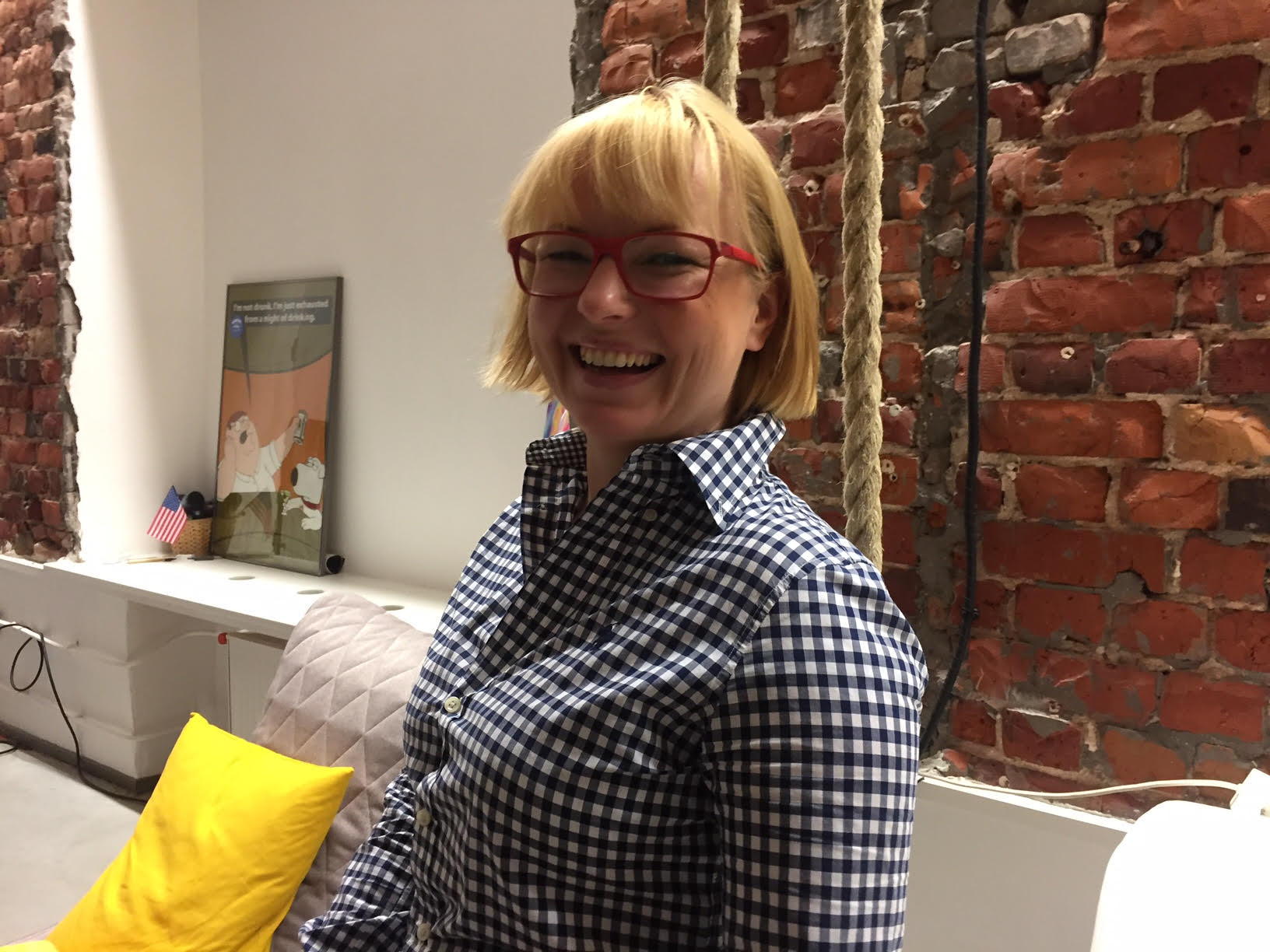
Karoli Hindriks
From Amsterdam we flew to Tallinn, where Siim was our only local contact, along with a tentative meeting with Igor Ponikarchik and Vlad Herchykau, Belarussians we’d connected with at Web Summit, whose company Bamboo Group had a second office in Tallinn. They’d promised to show us the e-Estonia showroom, an impressive, curated display of local tech hardware and software innovation (there’s nothing like this in San Francisco or Silicon Valley). We arrived in the charming Old Town, where the grand Christmas tree was lit up, the locals celebrating with dancers, music and hot glogg in the square to ward off the cold. Finally, we were going to have some time off to sightsee and relax. But then Siim got on his email and we suddenly had a dozen introductions to local entrepreneurs. We had meetings all day, every day, connected with Igor and Vlad at the e-Estonia Showroom where we got a great tour from Indrek Onnik, later met multiple startup owners including the fascinating Karoli Hindriks of Jobbatical, a startup tapping the new global trend in work-anywhere talent. We also visited Ragnar Sass at his cool co-working, event, and community hub LIFT99. The next thing we knew were cutting through the dark waters of the Baltic Sea on the boat to Helsinki. Looking back, we were lucky, but we also had faith that we could iterate and make stuff happen on the fly.
Slush was a frosty blur. After more than a month living out of suitcases we were ready for a recharge. But we met a bunch of cool startup founders, got a kick out of seeing Igor pitch his SchoolOS startup, ran into Terri Mead and her Bay Area VC friends who helped us crash two legendary dinners and parties from the Finnish experience design firm, Idean. Before we headed home, through an Estonian connection made just a couple of days before, we met and interviewed a local legend, Jaan Tallinn, a key investor in the Estonian startup, Lingvist, and the co-founder of Skype.
The Iteration Loop
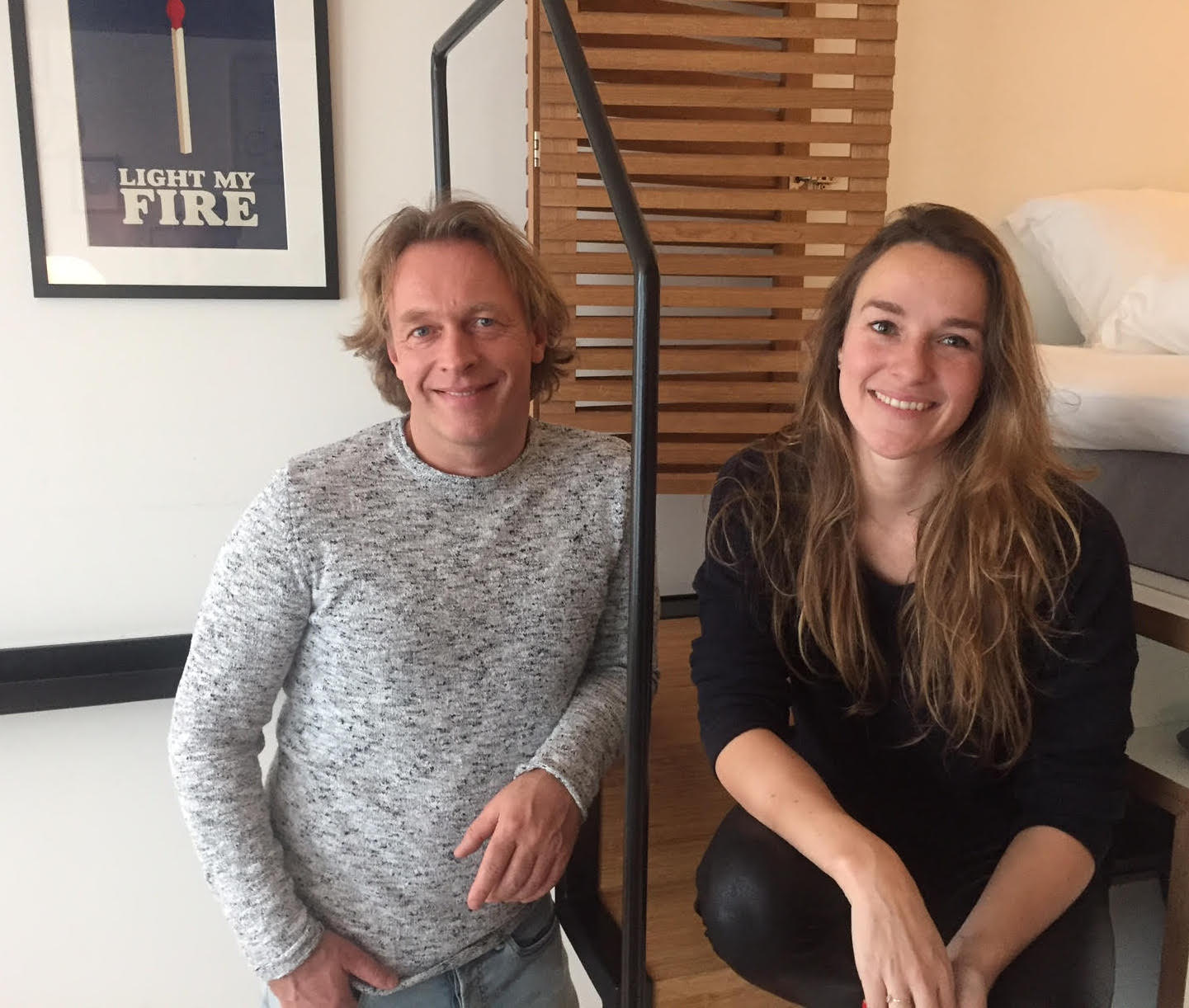
Hans Meyer, Veerle Donders
The funny thing about coming home is that in some ways our trip hadn’t ended at all, but rather entered a new phase. Veerle Donders and Lucas Crobach of Zoku flew in from Amsterdam this week for a co-living conference, and we took them to some of our favorite spaces and people around SF, and got a clearer sense of this huge global trend of businesspeople and entrepreneurs wanting more meaningful places to stay, work, inspire and connect.
It’s a small, accelerating world. When we took our Dutch friends to swissnex on the San Francisco waterfront, Steven Reading, the head of Corporate Innovation and Startup Development, kindly gave us a quick tour and told us their newest addition to the international tech incubator is none other than MindMaze, the Swiss unicorn we’d met on the first day of our trip back in October. This Friday, we’ll head down to Palo Alto for the Idean Christmas party.
We’ve got a confession. We’re getting restless and pondering our next international move. Asia may be soon: Singapore, Shanghai, Vietnam? And, come springtime, we know we’ll be back in Lisbon, the perfect hub for more European connections.
The journey is just getting started.
The latest on European tech ecosystems. Check out this story and more in our series.
Web Summit Formula for Success: How to Meet the People Who Matter
Startup Passion in Paris: Station F, Le Village, Ecole 42 … et plus

